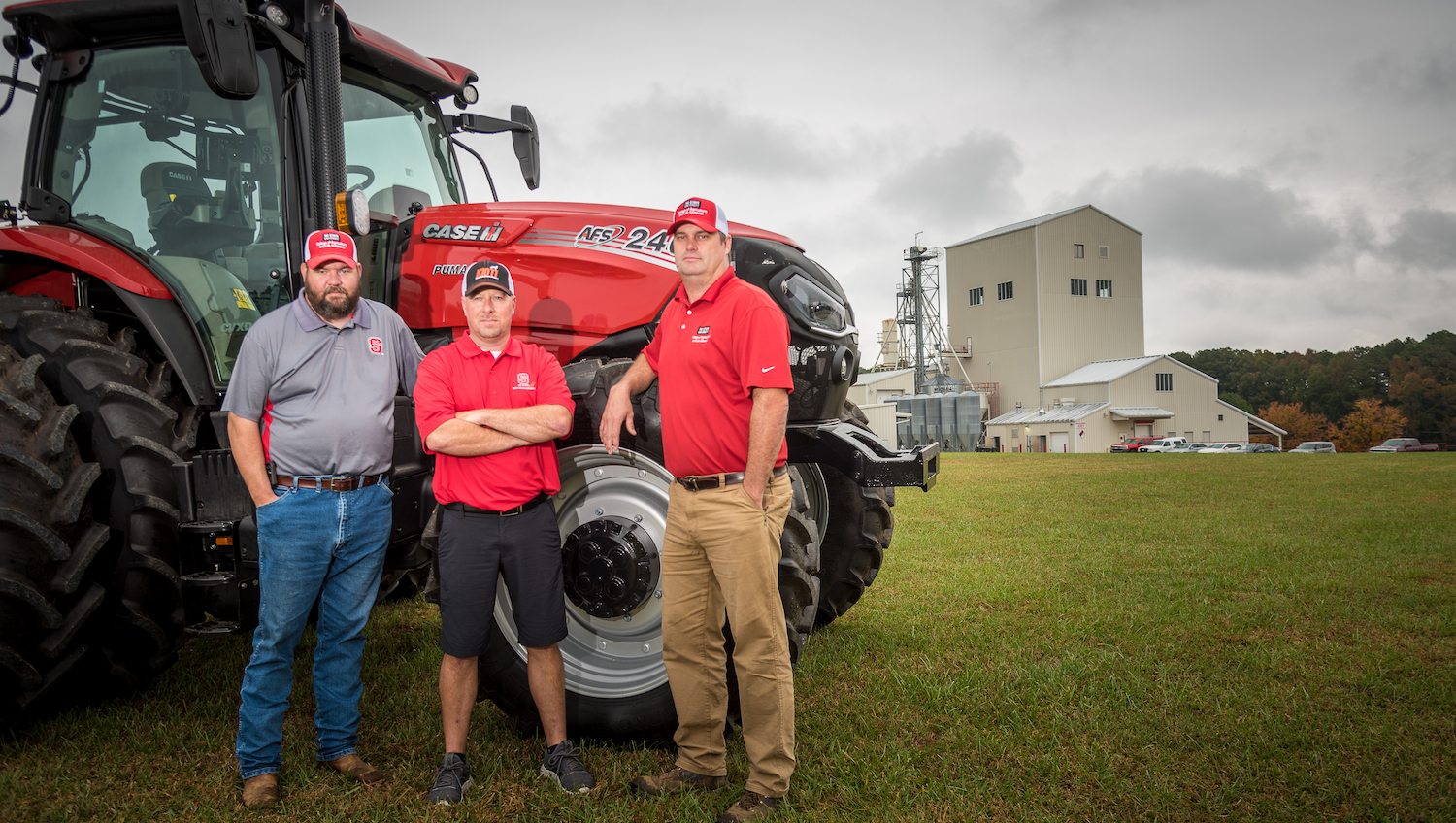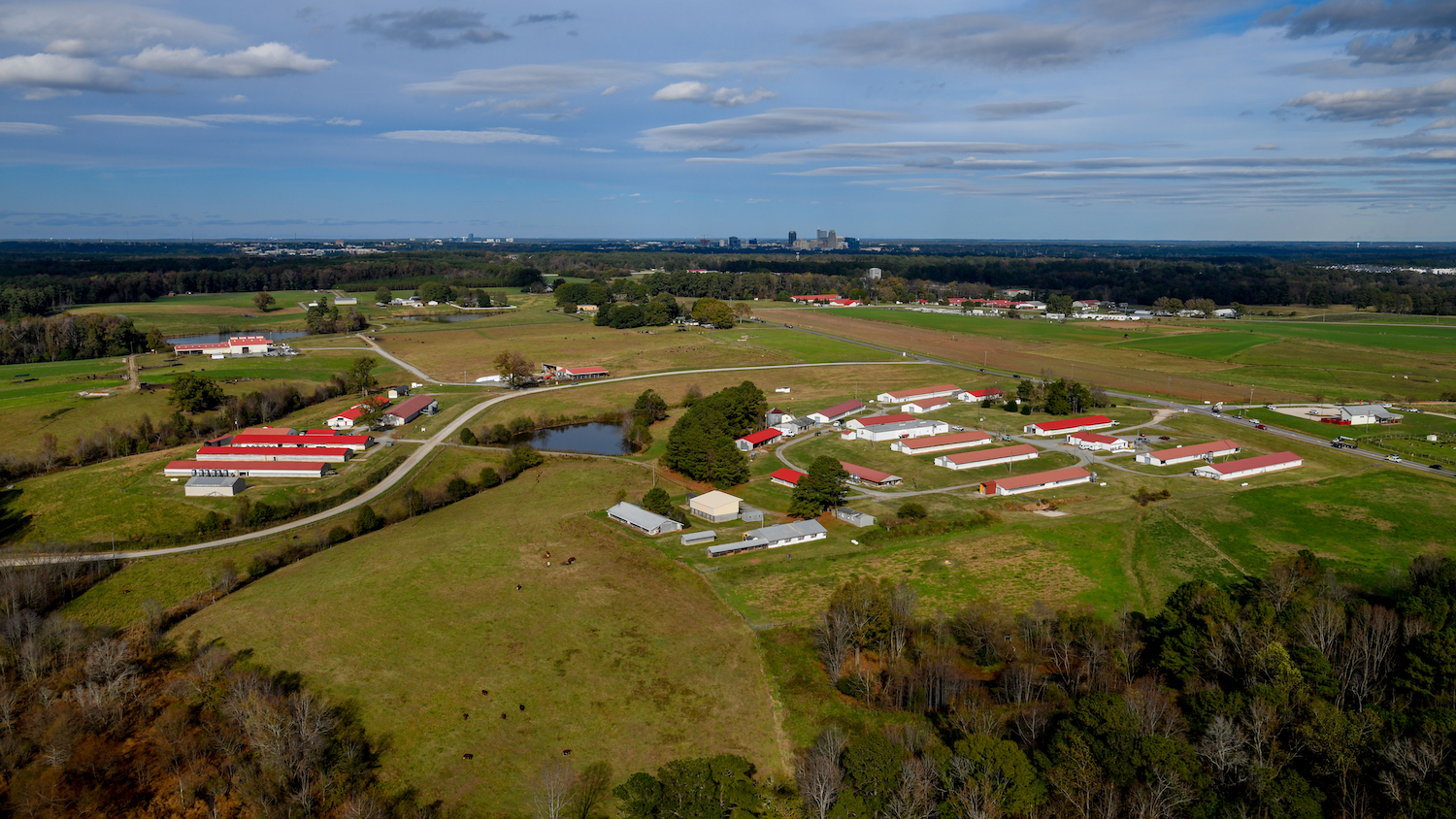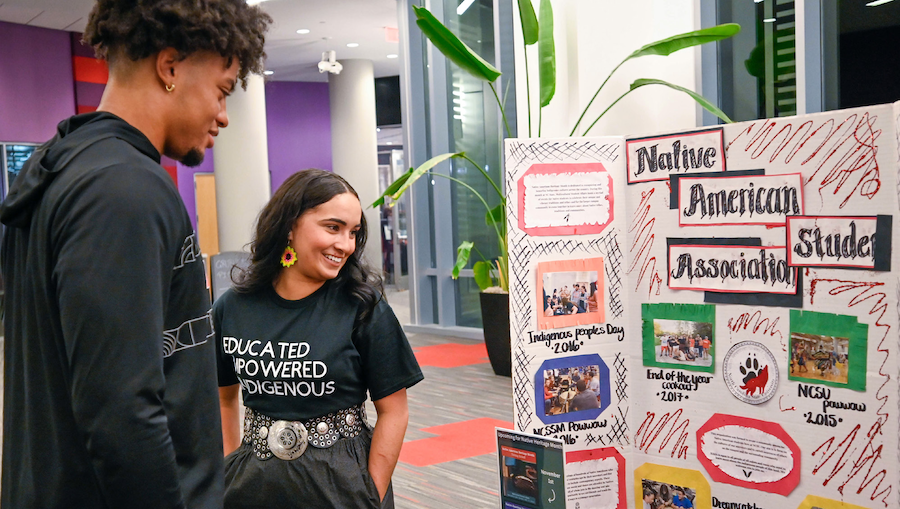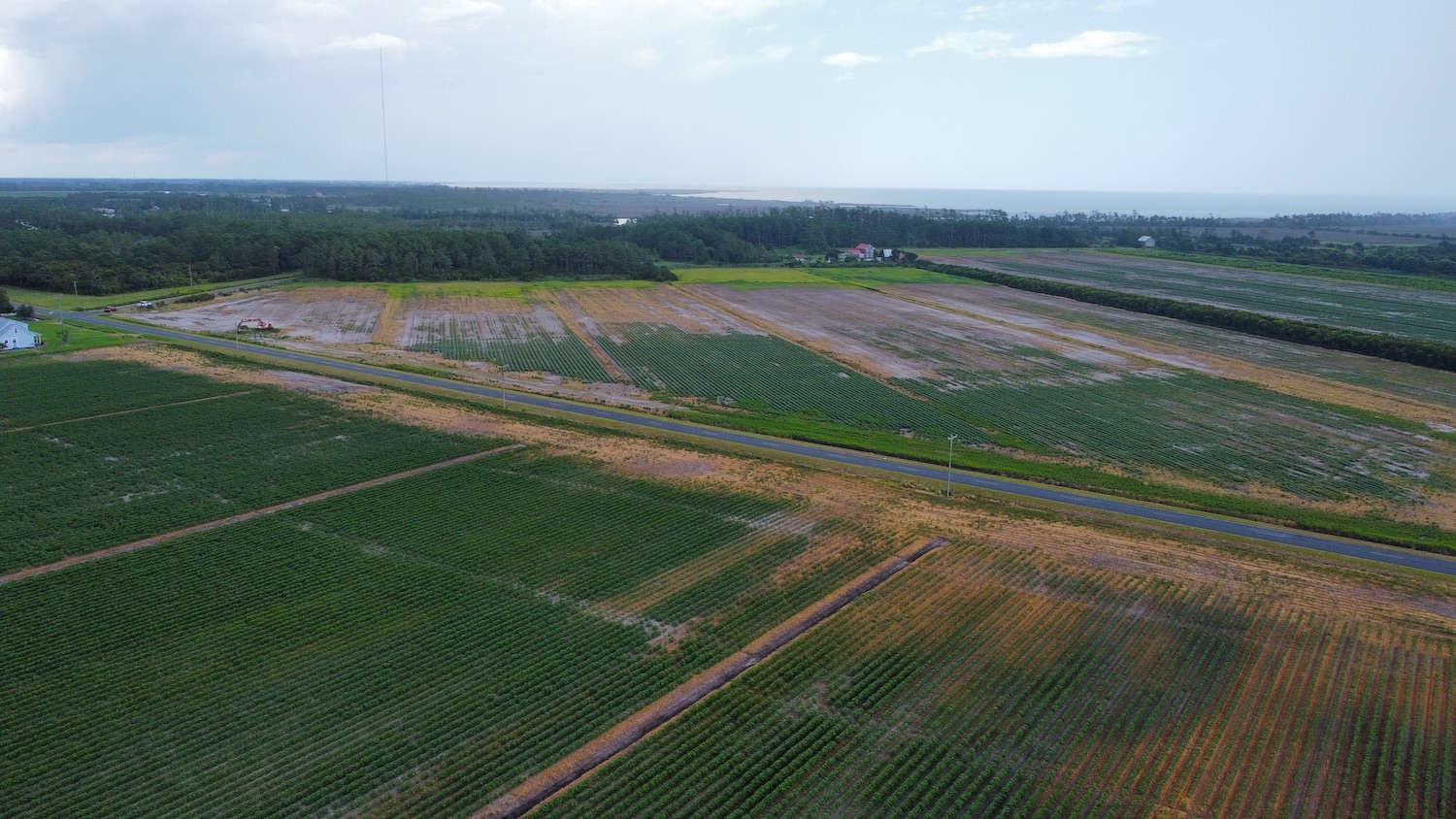I AM CALS: Philip Newton, Bill Whaley and Chad Carter
Three men who’ve worked together for 20 years to keep NC State’s biggest field laboratory running share long days, laughter—and a deep well of trust.
What’s it like to work with someone for 20 years—41,600 hours of shared team meetings, career milestones and Monday mornings?
For Lake Wheeler Road Field Lab colleagues Chad Carter, Philip Newton and Bill Whaley, it means learning each other’s working styles, morning routines—and senses of humor.
“Twenty years, that’s a pretty long prison sentence,” Whaley says, sending Carter and Newton into peals of laughter.
“I mean, it could be worse than these guys,” Newton adds. “… I guess.” More laughter.
“We’ve been working together longer than we haven’t been working together, when you think about it,” Carter says, getting serious.
“It’s not so bad,” Whaley admits. “We’re pretty much like family by now.”
Here’s what you should write: ‘Bridget Lassiter couldn’t do her job without them—and she wouldn’t want to.’
For 20 years, these Agricultural Institute alums have helped maintain the field lab as a thriving farm, vital research facility and hands-on classroom. Their boss, Superintendent Bridget Lassiter, calls the trio her “right-hand men” during a pivotal moment, as the university invests in making the farm future-ready.
Lassiter credits Carter, Newton and Whaley as crucial to that mission.
“They hold this farm together,” she says. “Here’s what you should write: ‘Bridget Lassiter couldn’t do her job without them—and she wouldn’t want to.’”
If you’ve never had the chance to visit the field labs, picture 1,800 acres of rolling green farmland less than five miles from Patterson Hall.
“I don’t know of many capital cities that have urban agriculture and research farms this close to downtown and to a major university,” Carter says. “It’s an incredible resource—within 10 minutes of leaving the classroom, NC State students can be on a farm, learning and working.”
Carter’s first experience at the field labs was as a student. He, Newton and Whaley graduated in 2000 from the Agricultural Institute, CALS’ streamlined two-year agriculture degree program. CALS snapped up all three men as employees within a year of their graduation. Carter is now a research operation manager. Newton oversees field operations and animal waste management. Whaley is building and maintenance supervisor.
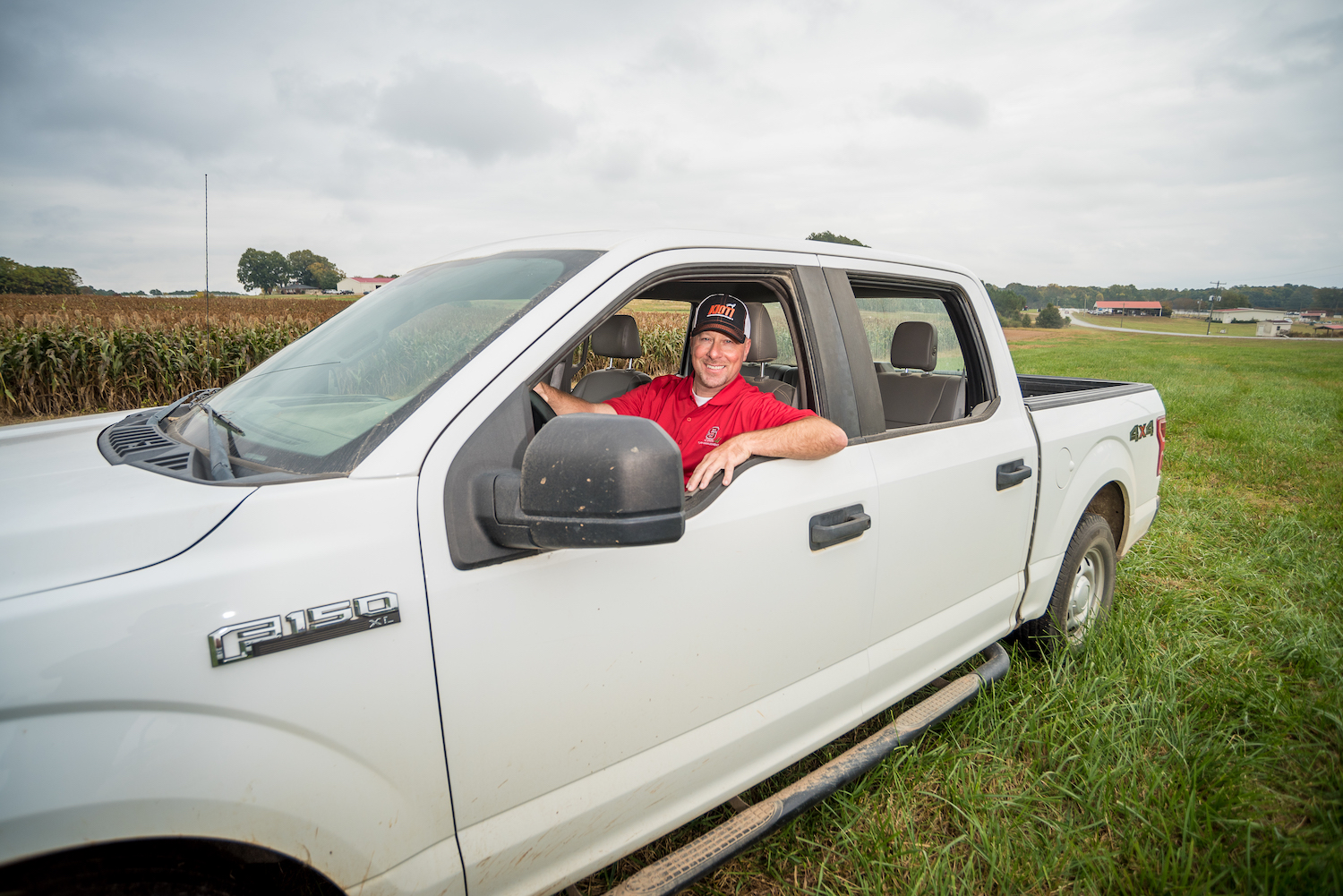
Lassiter likes to boast about their combined 60 years of on-site experience, which she says was important when she became superintendent.
Being the new boss can be tricky enough, but Lassiter has also been charged with making changes to daily operations by updating policies and procedures. Lassiter relied on Carter, Newton and Whaley to help integrate changes without losing time or disrupting staff morale.
“They’re my early adopters,” Lassiter says. “They tell me what’s doable and when, based on their knowledge of the facilities and the teams.”
Personality-wise, the men couldn’t be more different. At a typical team meeting, Carter is outgoing—“everybody on the farm knows Chad,” Lassiter says. Whaley checks in quietly with his colleagues one by one. Newton rarely talks at all, Lassiter says, “unless somebody uses the wrong numbers.”
I don’t know of many capital cities that have urban agriculture and research farms this close to downtown and to a major university. It’s an incredible resource—within 10 minutes of leaving the classroom, NC State students can be on a farm, learning and working.
In 20 years, each of the men has built a reputation, and Newton’s near-photographic memory for data is legendary: When a barn burned down in 2021, he remembered the model number of every piece of equipment stored there, plus prices and dates of purchase.
Likewise, Whaley is on speed-dial for every aspect of maintenance for the 200 buildings and countless miles of fences and landscaping, from stuck gates to the Wi-Fi connection. Carter’s network is wide-ranging; he attends universitywide strategy meetings with Lassiter and translates that vision to the team.
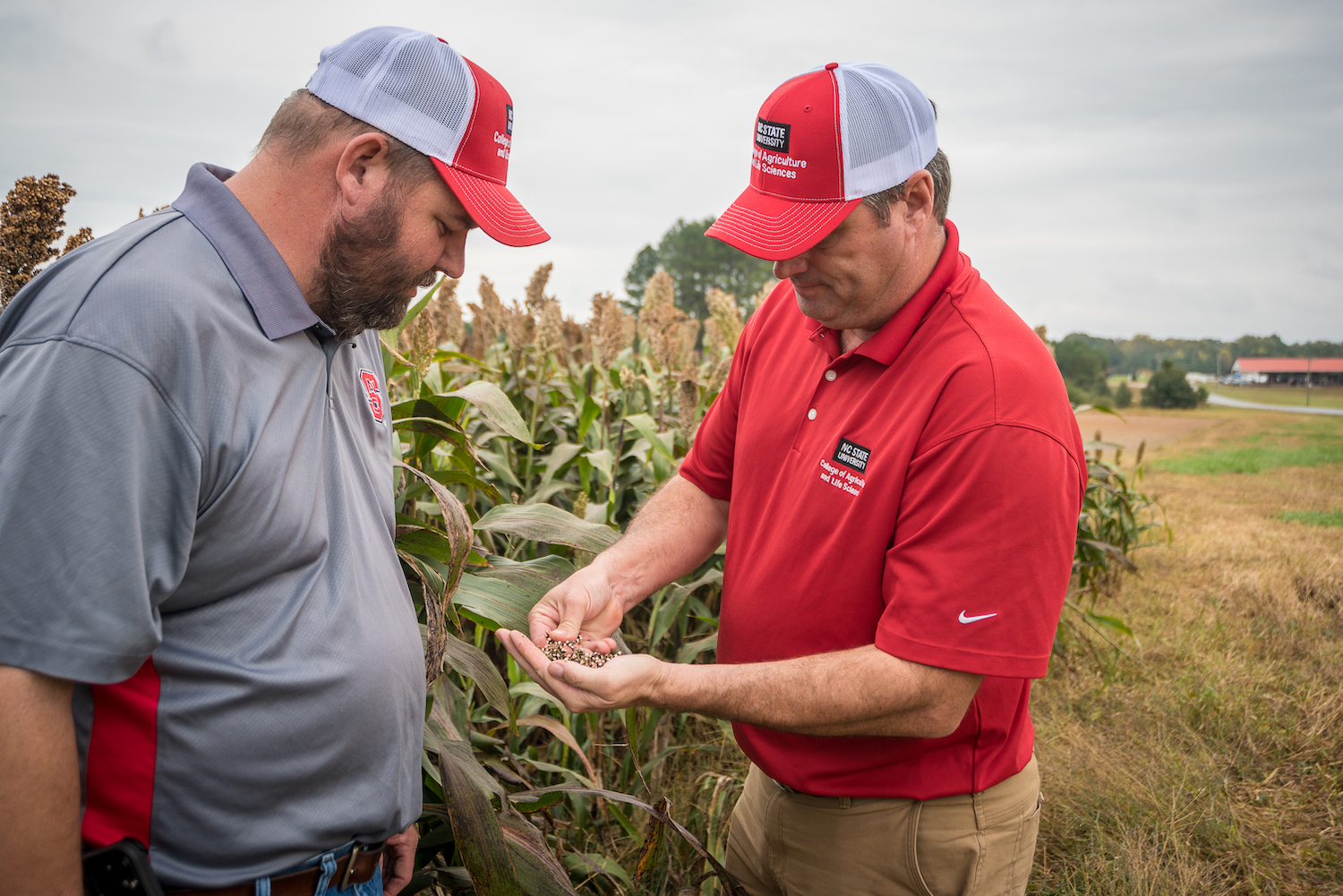
Despite their differences, the men work together seamlessly. When a tropical storm threatened Raleigh during the sorghum harvest, two decades of shared priorities and experience kicked in: One quick phone call was all it took for each man to jump into a truck and take off for different parts of the farm. It took them four consecutive 16-hour workdays, but Lake Wheeler didn’t lose a single sorghum plant to the storm. The men finished the harvest just a few minutes before the rain began.
When you boil it down, the men agree, what those 41,600 hours working together adds up to is both simple and rare: 20 years of earned trust in each other’s competence, work ethic and integrity.
“I wouldn’t want to do this job without them,” Lassiter says. “I learn something new from them every day.”
- Categories:
